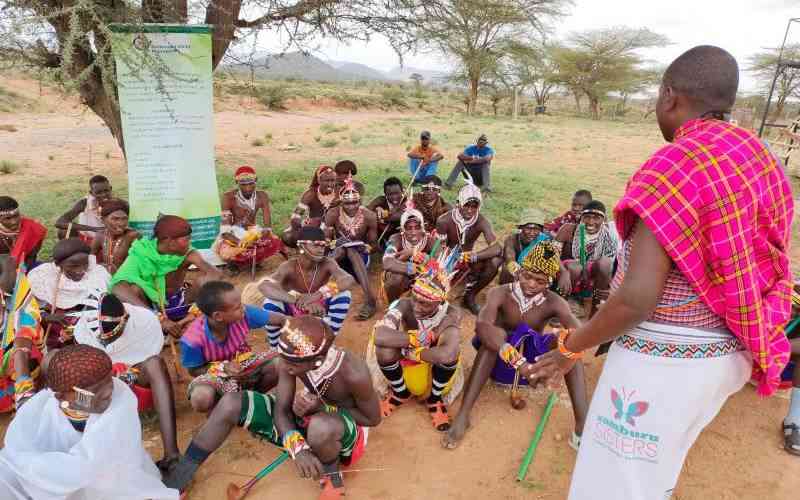
A 2020 report on the link between Gender-Based Violence (GBV) and environmental issues by the International Union for Conservation of Nature (IUCN) and the United States Agency for International Development (USAID) suggests that dowry practices are usually heightened during natural disasters such as drought and displacement of people.
This study prompts a much-needed assessment of the social implications of the worst drought in four decades that Kenya recently experienced.
There is insufficient official data to ascertain the gravity of the problem because most of these practices are done secretively. However, a UNICEF report estimates that 23 per cent of women in Kenya were married before the legal age of 18 and 4 per cent before 15.
Climate change contributes to these figures as parents look to recoup their livestock lost in extreme climate events like droughts. Consequently, many girls drop out of school, undergo Female Genital Mutilation (FGM), and get married in exchange for cows, camels, and goats paid as bride price.
The drought experienced in Kenya earlier this year and the forthcoming El Nino rains should indicate a possible resurgence of the practice. One of the reasons some cases go unnoticed is because parents and other practitioners of the act lie about the bride's age.
A 2020 article in TIME Magazine features the story of Tunne, an underage girl just about to get married. However, on inquiry, the journalist does not get a consistent answer about the young girl's age.
Additionally, some local authorities enable this practice by turning a blind eye to their outdated culture. Since some authorities may have come from the local community and still subscribe to this practice, they may be lenient to the perpetrators of child marriage.
Kenya has made great efforts to mitigate the problem of child marriage. In 1990, we ratified the UN's Convention on the Rights of the Child, which prohibits child marriages. Additional laws criminalising this practice in Kenya include the Marriage Act of 2014, the Sexual Offences Act of 2006, and the Children's Act of 2001.
- Climate: Experts call on countries to invest in early warning signs
- NGO hosts international symposium on climate change
- Global warming linked to consumption of sugary drinks, ice cream
- UK's largest lake 'dying' as algae blooms worsen
Keep Reading
A peculiar angle to the impacts of climate change that is usually overlooked is how it affects child marriages, particularly among pastoralist communities that, almost entirely, depend on their livestock. We need to assess the effects of the recent drought and prepare for El Nino rains.
The author is an environmentalist with a BSc in Environmental Education
 The Standard Group Plc is a multi-media organization with investments in media
platforms spanning newspaper print
operations, television, radio broadcasting, digital and online services. The
Standard Group is recognized as a
leading multi-media house in Kenya with a key influence in matters of national
and international interest.
The Standard Group Plc is a multi-media organization with investments in media
platforms spanning newspaper print
operations, television, radio broadcasting, digital and online services. The
Standard Group is recognized as a
leading multi-media house in Kenya with a key influence in matters of national
and international interest.




